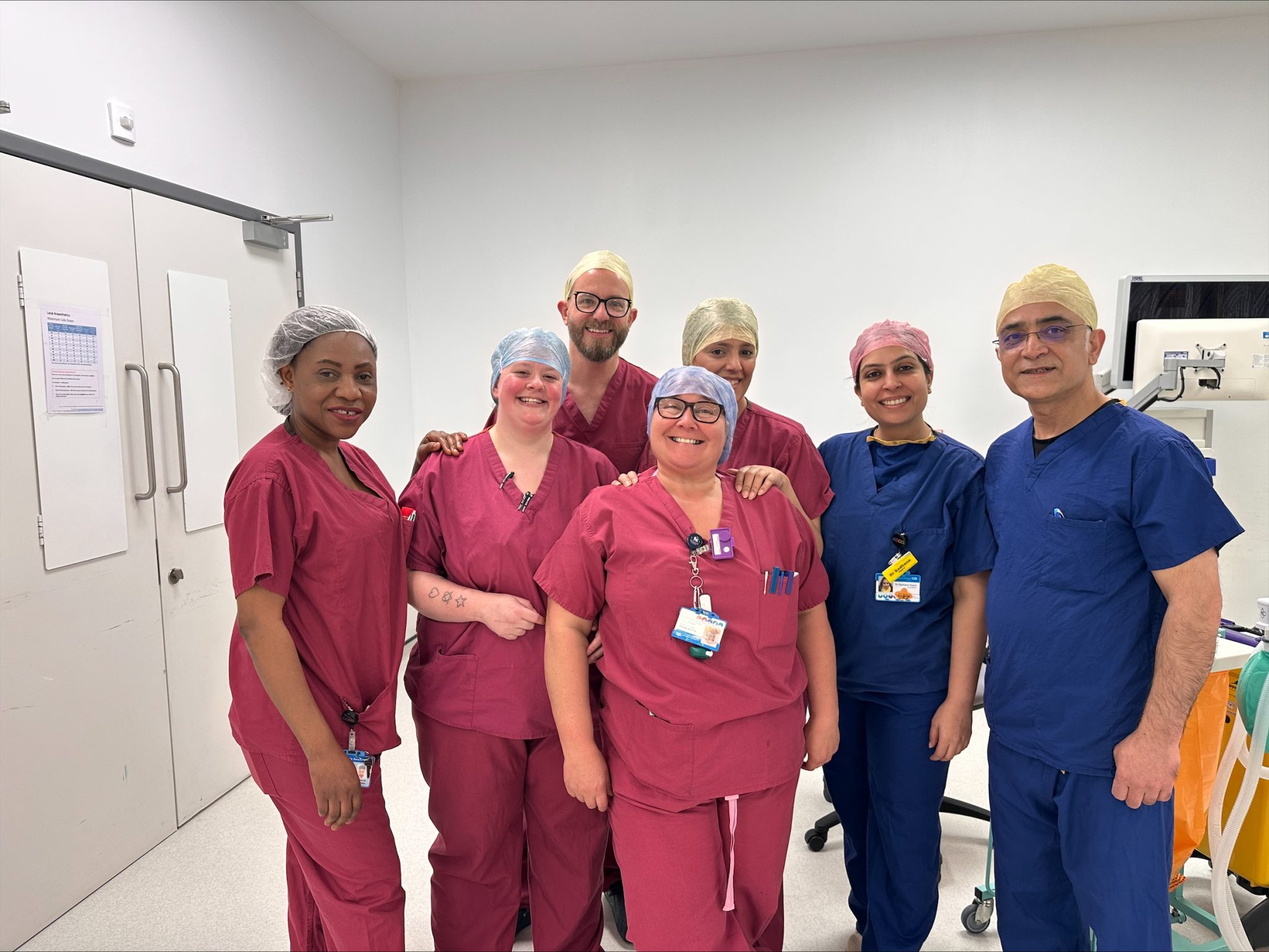A woman has thanked the team for the fantastic care she received after becoming one of the first patients to have ‘awake breast surgery’ at Walsall’s Manor Hospital.
Patricia Wilkes, 62, underwent a mastectomy after being diagnosed with a rare condition associated with breast cancer – Paget’s disease of the nipple.
It causes eczema-like changes to the skin of the nipple and the area of darker skin surrounding the nipple (areola). It’s usually a sign of breast cancer in the tissue behind the nipple.
Surgeons successfully performed a mastectomy under regional anaesthesia, which “blocks” a specific area of the body, and conscious sedation.
Patricia was discharged that same evening.
She said: “I found a lump in December last year and made an appointment with the doctor. They did a biopsy and MRI scan to confirm I have Paget’s disease and needed a mastectomy.
“I have COPD and other health conditions so I was very nervous about surgery and my lungs not being able to cope if I was put to sleep.
“The staff were absolutely fantastic and reassured me all the way. They held my hand and spoke me through everything. I don’t remember a thing from the surgery or being in any pain.
“I was so grateful I could go home that evening and didn’t need a night in the hospital.
“Thank you so much to the staff at the Manor – you were brilliant.”
Matt Green, Consultant Breast Surgeon and Clinical Director for General Surgery at Walsall Healthcare NHS Trust, said it was the second operation of its kind done at Walsall.
He said: “It is used for patients who are not deemed appropriate for general anaesthetic due to other medical problems that would make them very high risk for the anaesthetic.
“It is performed under what is called regional anaesthetic, which involves a specialised anaesthetist giving a series of injections into the back and sometimes the side, to make an area of the body numb so that we can operate with the patient still awake but unable to feel any pain associated with the surgical procedure.
“This allows us to perform curative procedures on patients who previously would not have been able to have the operation. In this lady’s situation, this would have meant that her pre-cancerous changes would have progressed to her developing breast cancer, which could then spread and become untreatable. It essentially brings these patients’ treatment in line with standard treatments while removing the potentially dangerous need for a general anaesthetic.”
Mr Green gave special thanks to the expert theatre team – Dr Mohammed Salim, Dr Sadhana Sapra, Tanya Gorman, Chelsea New, Catherine Nneke, Angie Archer and Sarah Morris – who he said make these procedures “seamless”.

